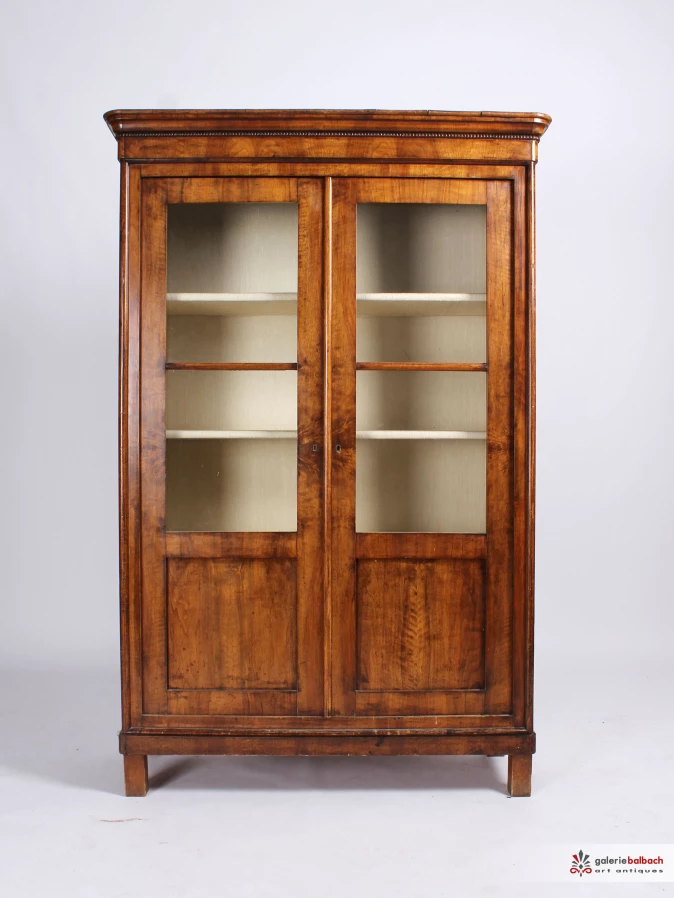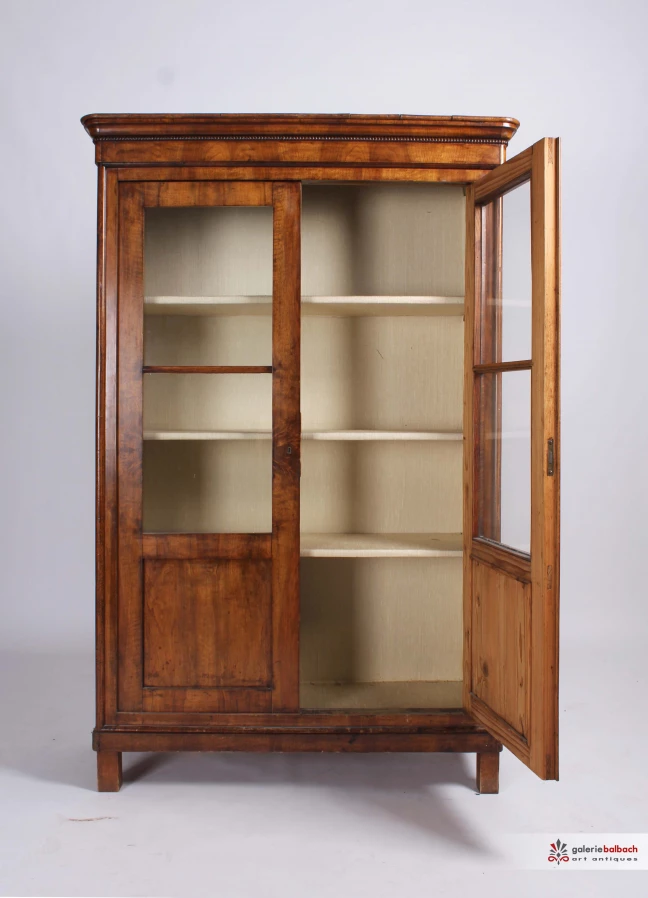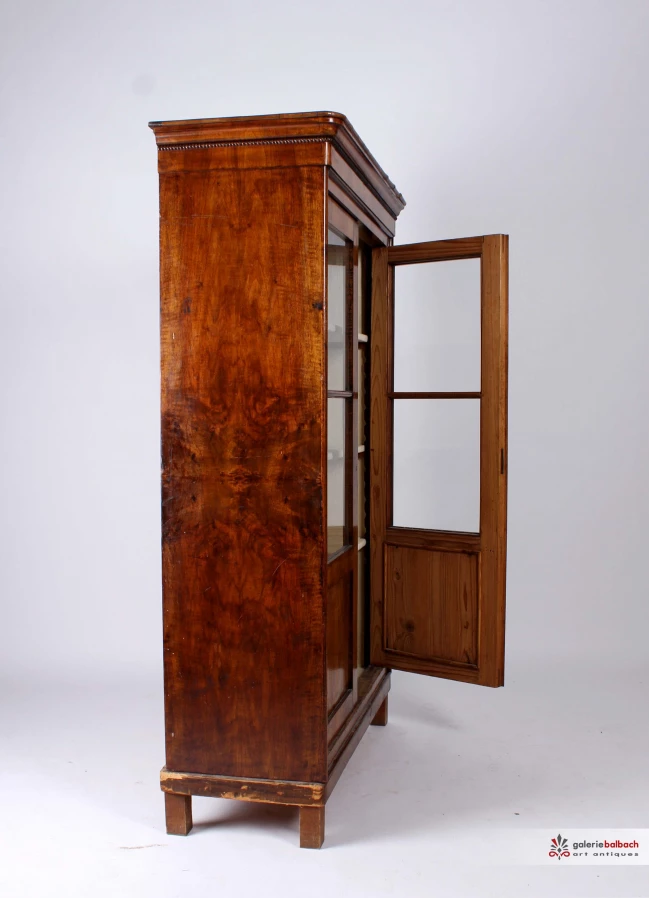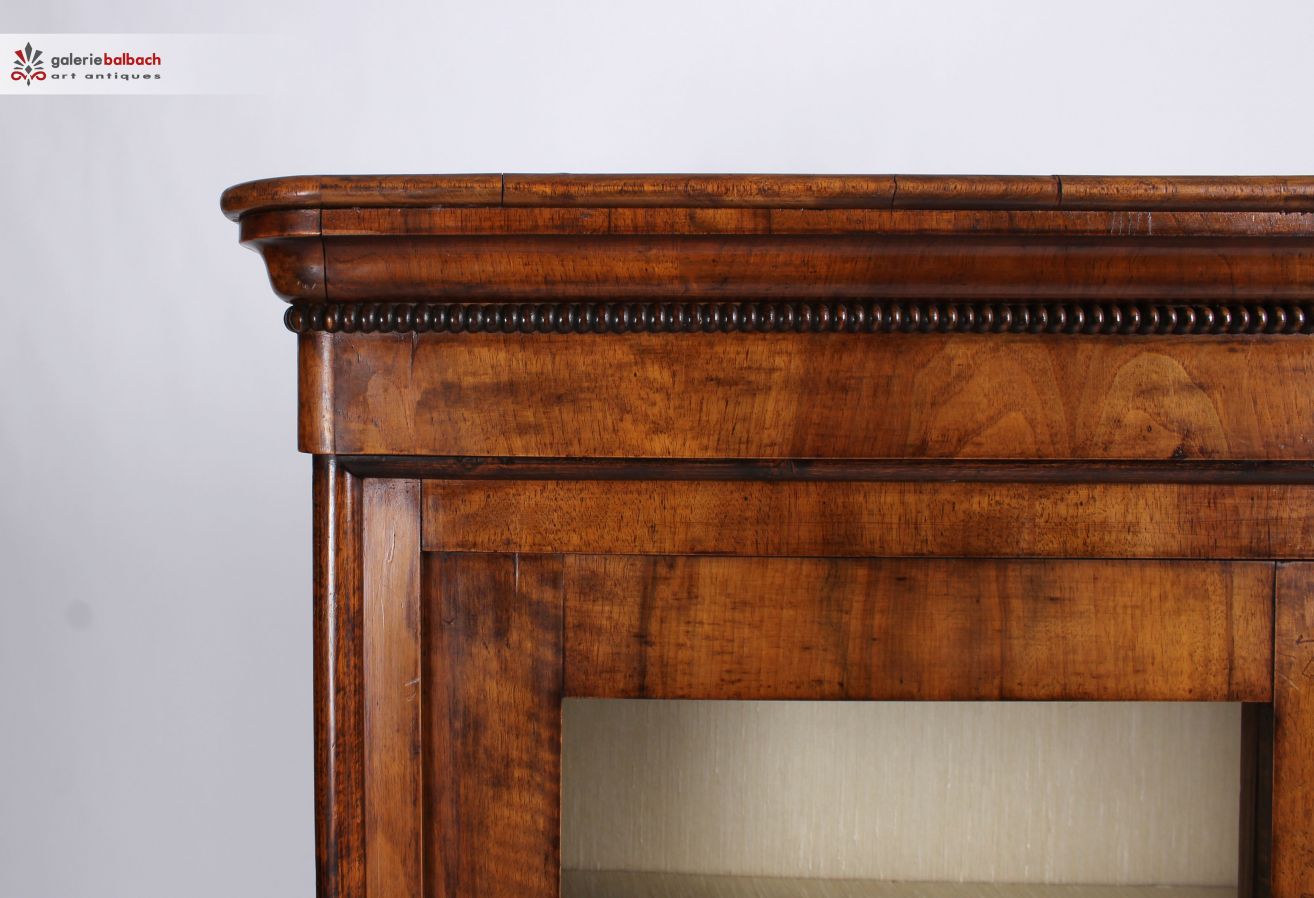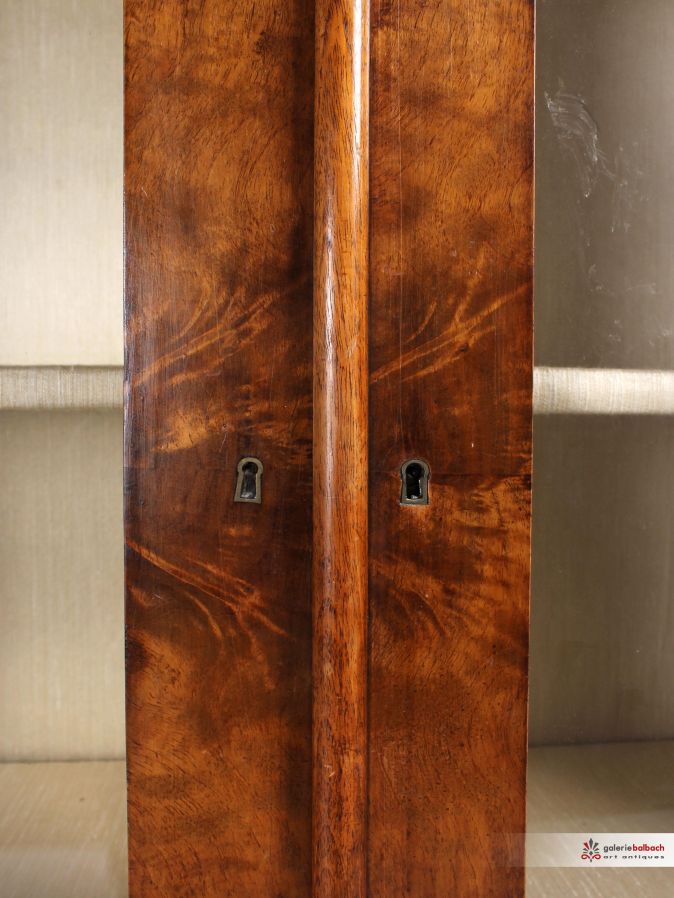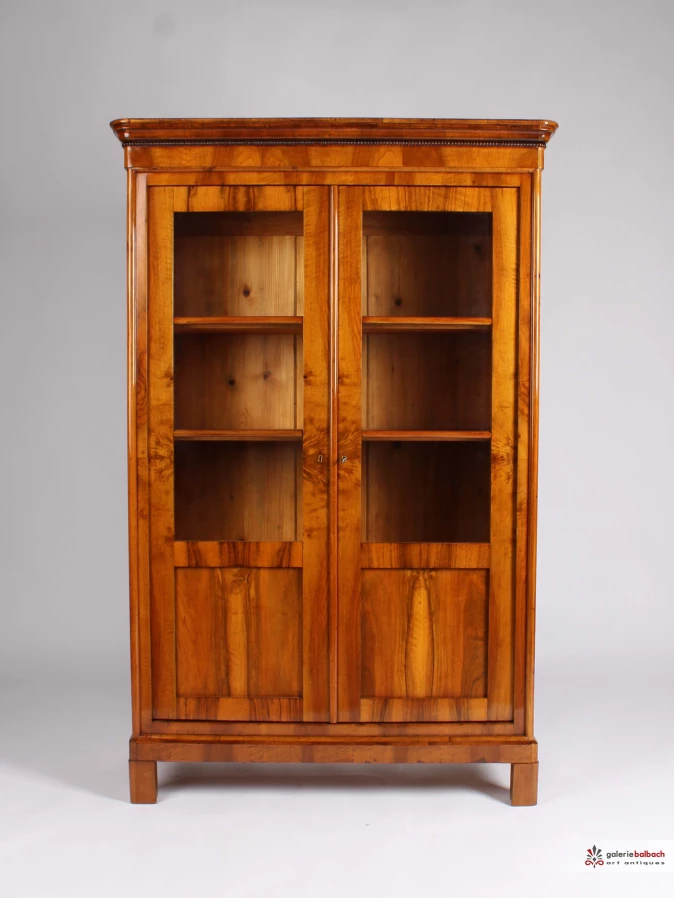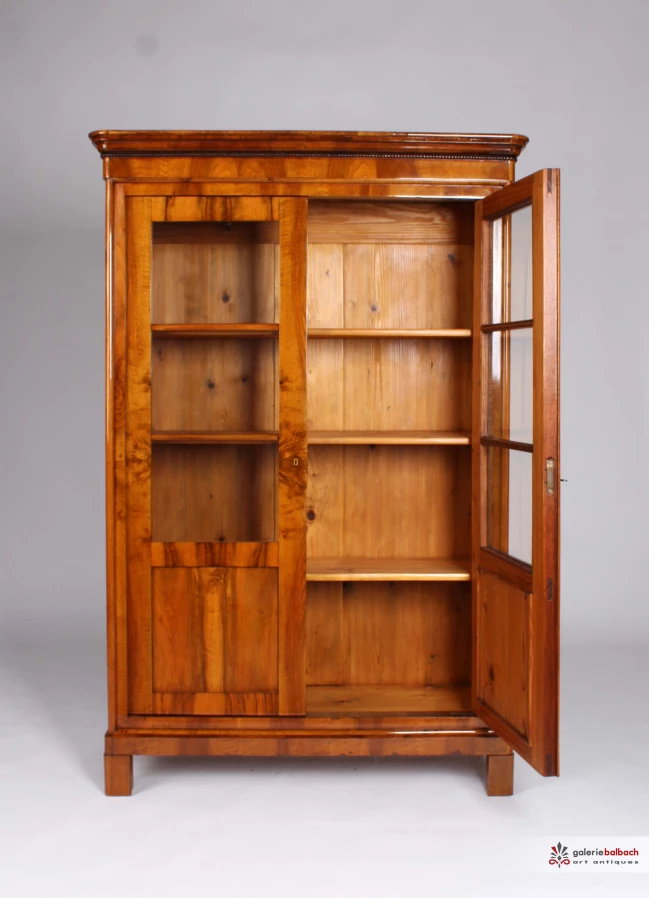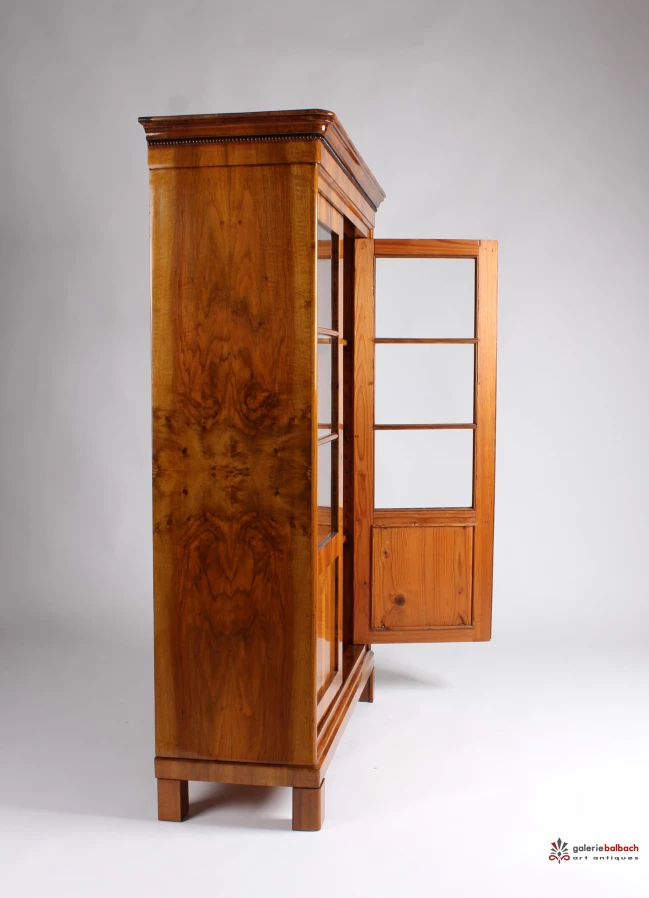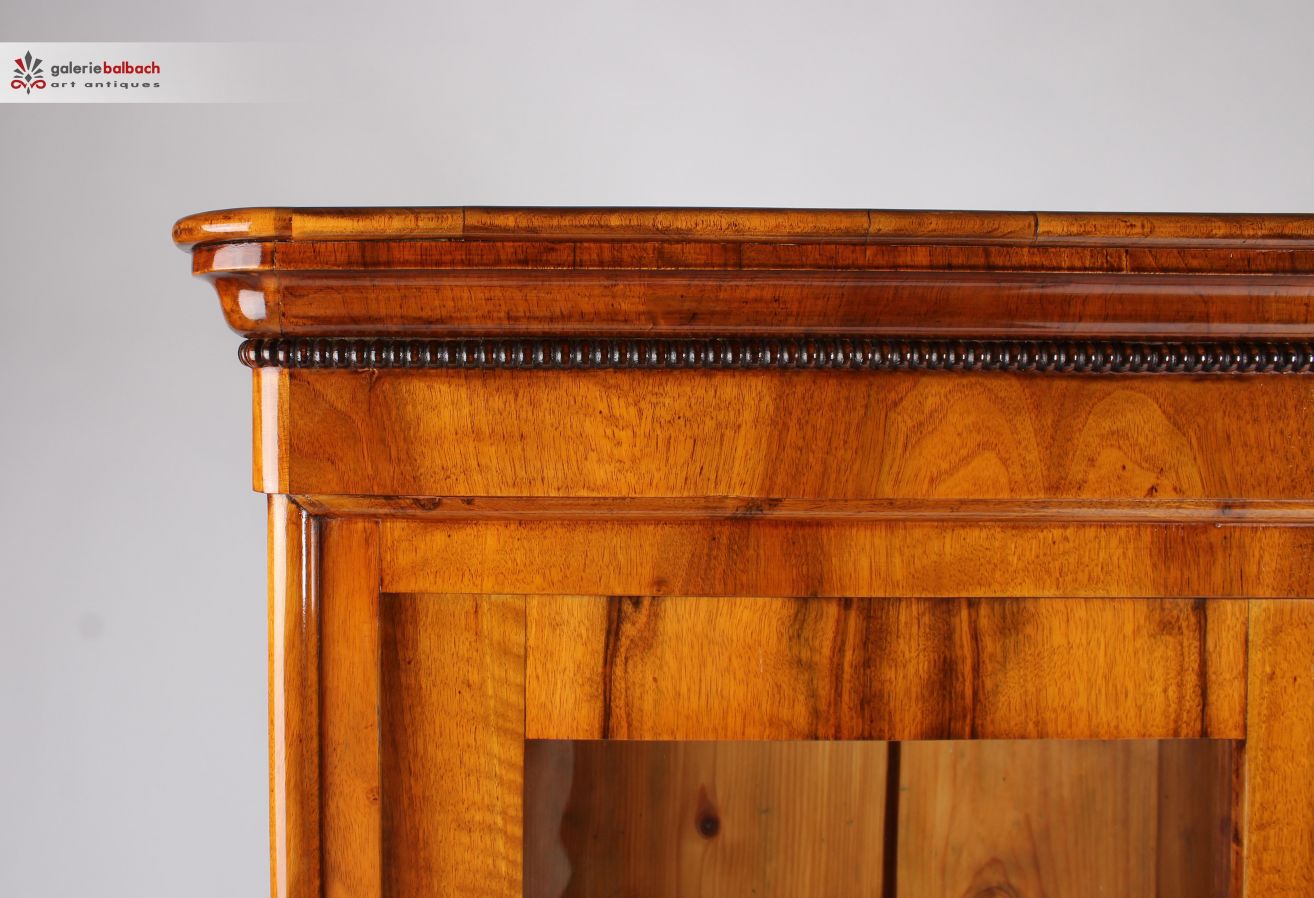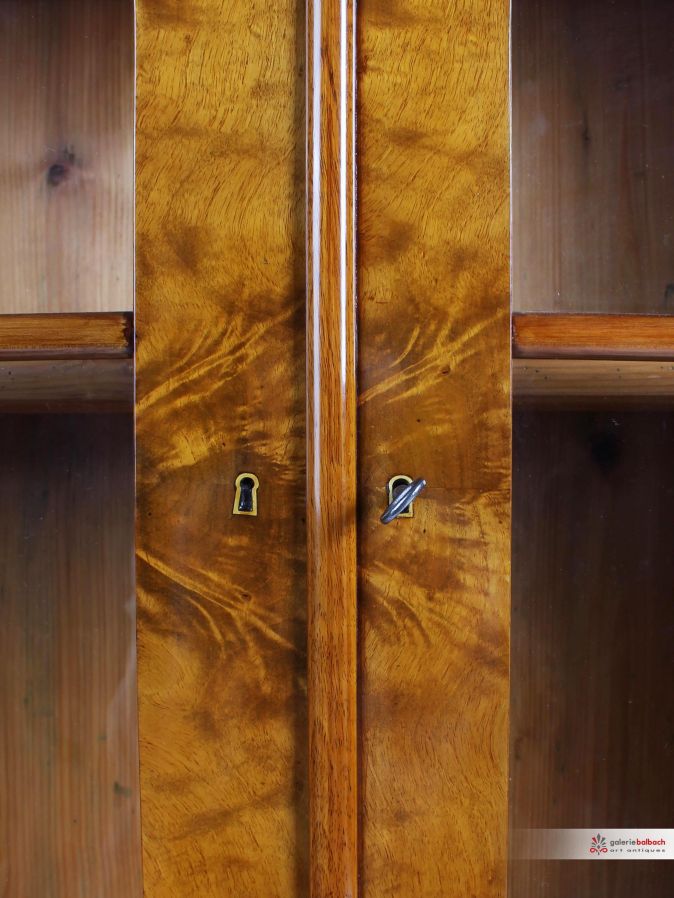Refurbishment of a Biedermeier bookcase
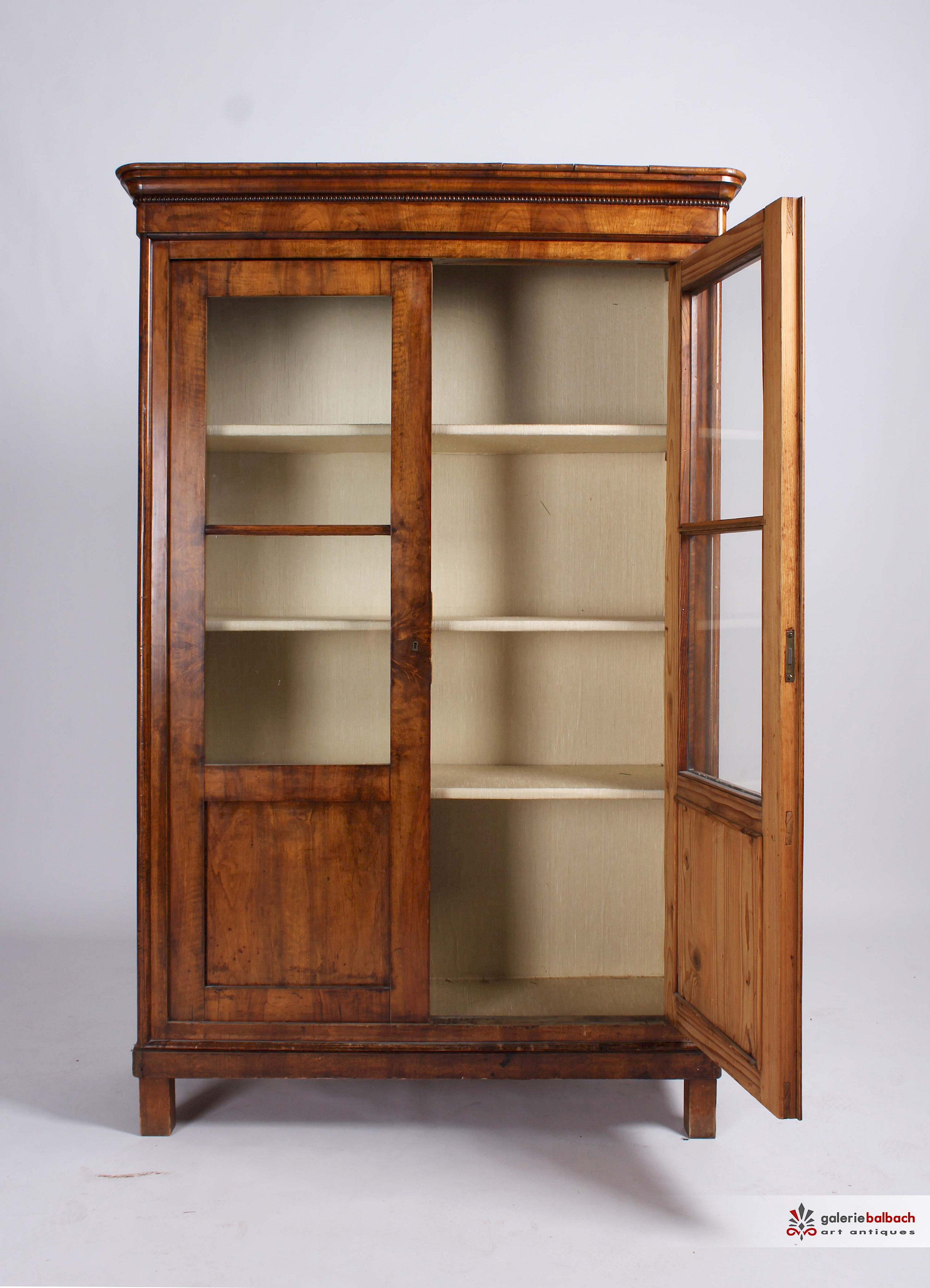 The two-door walnut bookcase presented here dates from the late Biedermeier period around 1840.
The two-door walnut bookcase presented here dates from the late Biedermeier period around 1840.
Restoration of antique bookcases and display cabinets
The piece of furniture is convincing because of its well-chosen proportions and its excellent craftsmanship.
Nevertheless, everyone would probably describe the overall impression as "bad" at first. But anyone familiar with antique furniture will quickly recognise a basic substance absolutely worth preserving behind the dirty façade.
And so, in this case, the great grain pattern of the walnut could only be guessed at, but it was clear that the bookcase could only gain from restoration.
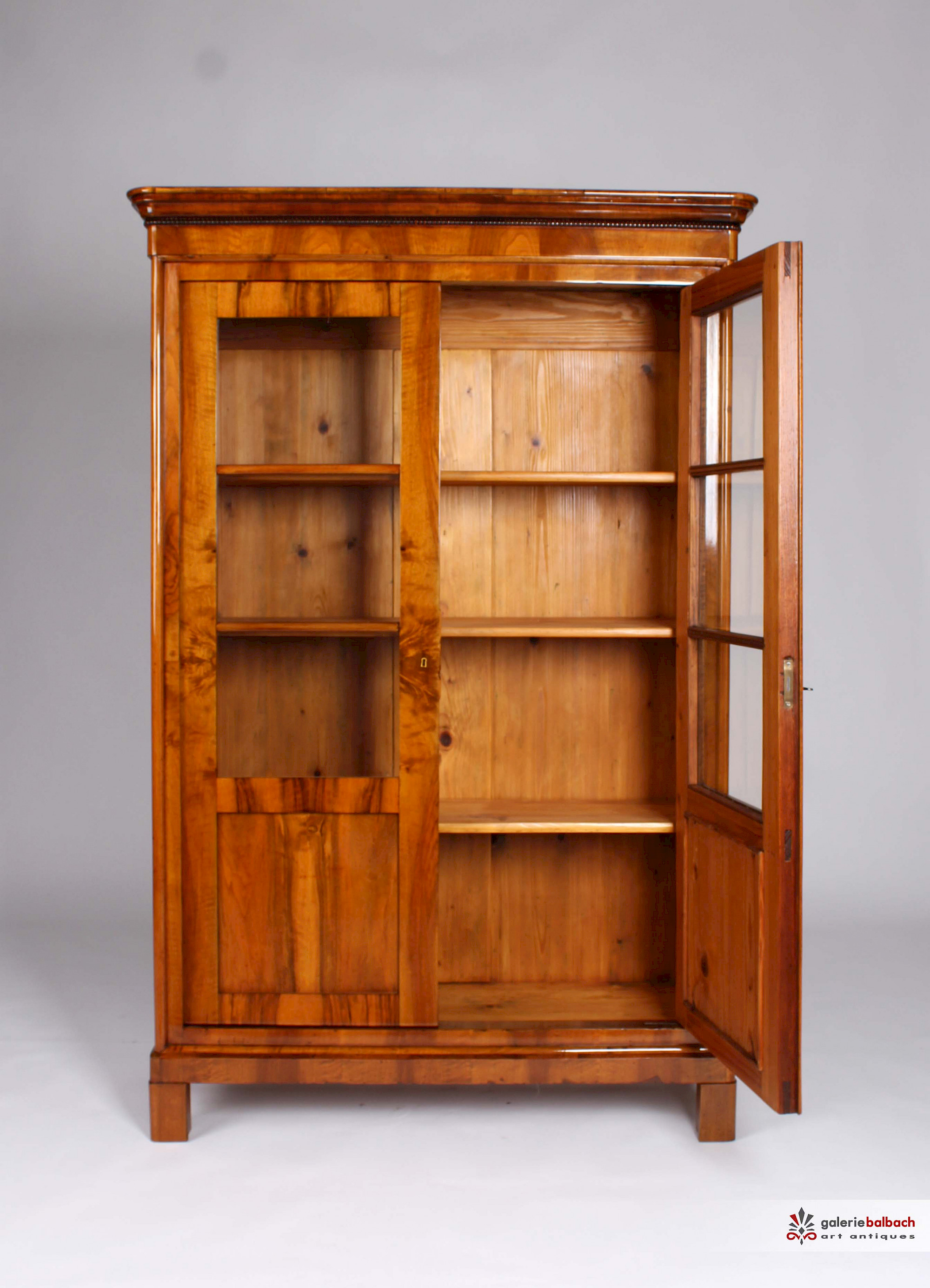 We decided to give the surface a basic cleaning and to remove the fabric coverings inside the piece of furniture.
We decided to give the surface a basic cleaning and to remove the fabric coverings inside the piece of furniture.
There were also some loose veneers and parts of the beadboard underneath the cornice to be strengthened.
The feet were to be "re-clad" and - according to the customer's wishes - the scions between the panes were to be laid exactly in front of the shelves.
Some of the original shellac can still be used!
The new surface was to be built up with a shellac hand polish.
As the first layers of shellac penetrate the material, it is always nice to find furniture that already has a good old shellac polish. So you don't sand down the old surface, but use the old shellac, which is deep in the pores, as a primer and build up a new top coat on top of it.
The shellac, which is dissolved in alcohol, is applied to the wood with a pad. By circular movements during the polishing process, a homogeneous surface with a constant thickness of the layers is achieved. This is done in several working steps with respective drying times. This is why we also speak of "several layers of shellac".
Shellac polishing gives the wood a certain "depth". Dark and light parts of the grain are more clearly distinguished from each other, the structure gains strength.
We are also happy to restore your antique pieces of furniture. We will adapt the colour and gloss level of the shellac to your individual wishes.
Just give us a call or send us an e-mail! As a rule, we can tell you the expected costs on the basis of photos.
We also restore your antique piece of furniture!
Simply contact us via e-mail, SMS or WhatsApp. If you send us some photos of the object to be restored, we can usually give you the approximate restoration costs based on the pictures.
Also interesting
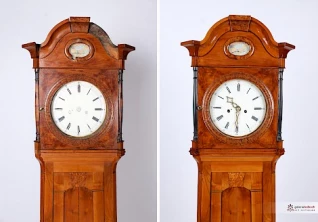
Restoring an antique grandfather clock
Does your clock still tick correctly? We restore antique table, mantel and grandfather clocks!
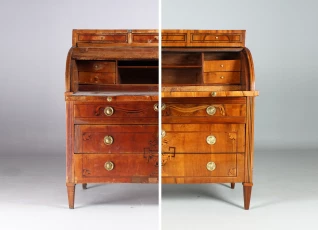
Restoration of a Louis XVI secretary
Fantastic furniture in sad condition....
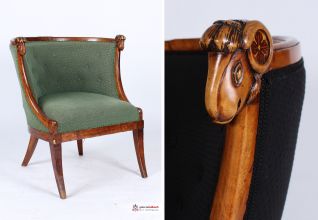
Upholstering and reupholstering an antique armchair
Modern look thanks to a new cover fabric...
